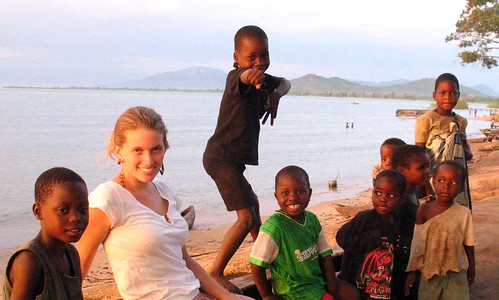
"Take it Global". That's the advice First Lady Michelle Obama gave the graduates of the George Washington University Class of 2010 when she gave the
commencement address in May. She was suggesting that the graduates continue their community service and expand it to other areas of the world. This is a reflection of the ever increasing globalization with which the United States and all other nations are faced, due economic, environmental, cultural and other interdependence. More than any other generation before you, this is the world you will enter shortly. "...We are no longer isolated from what happens on the other side of the world....it’s in our best interest to look beyond our immediate self-interest, and look out for one another globally....so many of today’s challenges are borderless, from the economy to terrorism to climate change, and that solving those problems demands cooperation with others", Mrs. Obama said.
Clearly, her message applies to all of you, as well as the GW grads. Why should you consider service abroad? Michelle Obama gave several reasons in her speech. "When you serve others abroad, you’re serving our country, too. You’re showing the world the true face of America –- our generosity, our strength, the enduring power of our ideals, the infinite reservoir of our hope. And yes, serving abroad will make you stronger, more competitive, a more valuable asset for a career in the public or private sectors."
This blog post is designed to help you explore one avenue of global community service: the Peace Corps. First,
click here to find out what the Peace Corps is. Next, discover where Peace Corps volunteers serve by
clicking here. Then, to learn more about what types of things Peace Corps volunteers do,
click here. Finally,
click here to choose at least one location on the world map to explore in depth the activities of a Peace Corps volunteer. Just move your cursor over the various blue dots to see the different types of work the volunteers are doing, and click on one or more that interest you. Many of the stories have slide shows or videos or audio reports that accompany them and make them more interesting.
Having done all of the above, address at least 2 of the following prompts:
Do you agree with Michelle Obama that global community service makes a difference to U.S. relations with the rest of the world? Why or why not?
Based on the specific volunteer and location you learned about, how is this volunteer impacting the community he or she is serving? Provide specific examples from what you read, watched, etc.
Do you think you would be interested in global community service such as the Peace Corps? If so, where would you want to serve? What type of work would you like to do? Why is this type of service personally important to you?




